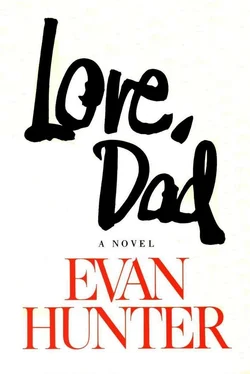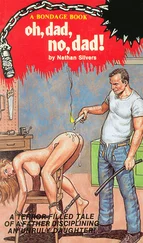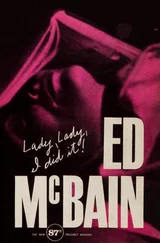They would have sounded inarticulate at best even to Englishspeaking adults back home as they, or more accurately Paul — Lissie has already begun to doze as the blackness of night surrounds the lumbering truck — tries to tell about the war in Vietnam, and the way kids all over America are being dumped on, and about the stupid laws regarding something harmless like marijuana, and about the corruption of the American government, and the nine-to-five mentality of the American male, and the corporate structure that is stifling individuality, and the oppression of women back in the States, and the emphasis on materialism, and the—
“Ah, oui, oui,” Jean-François says, not understanding at all.
It is, perhaps, not the best of all possible ways to be seeing a foreign country, especially one as exotic as this one. The road is a route traveled by caravans centuries before Christ was born, skirting the Black Sea until it angles off toward Ankara, and then never veering more than a hundred miles inland as it skewers Yozgat, Sivas, Erzincan and Erzurum, coming within fifty miles of the Russian border as it swoops down toward Diyadin and then Gürbulak, the last town on the Turkish side before entering Iran. Lissie must content herself with only glimpses of the countryside as the truck rumbles along on the relatively good road at a steady fifty-mile-an-hour clip except where there are excavations or detours (and there are many), at which times Jean-François slows down to a snail’s pace that enables her to appreciate more fully the strangeness of the nation through which they are traveling.
Summer is full upon the land here in the north of Turkey. In the apricot and apple orchards, the trees are already bearing fruit. Oxen and mules, horses, and here and there a straining man, pull ancient plows as they furrow the earth. Behind them, swarthy women wrapped in long scarves knotted over the forehead, draped about the throat, hanging down the back, squat to pick their potatoes or onions. Everywhere, the voices of the muezzin summon the faithful to their prayers. She learns to tell time by the chanting voices that float mellifluously from the minarets at dawn, noon, midafternoon, sunset, and the beginning of night, a darkness that falls with a sudden hush as the voices echo and die.
The lilting voices of children rising and falling on a sloping green field as they herd cattle homeward at dusk. The Kurdish voices of the men in the coffee house at a truck stop outside Imranli, rumbling out through the open arched doorway, not a woman in the room, the men mustached and bearded, two of them smoking water pipes, their dark eyes studying blond Lissie as she pauses in the doorway, all conversation stopping; she quickly takes Paul’s arm and follows Jean-François to a stand selling hot sausages and a drink that tastes like warm lemonade. The voices of shepherds calling to each other, leather smocks over cotton trousers, skullcaps and beards, a single star gleaming in the summertime sky.
The sheep are wearing blue beads around their necks — what are they for, she wonders. They pass farmhouses without electricity, the feeble glow of candles shining behind paneless windows. They pass fields of plants Jean-François identifies as poppies — “Coquelicots, vous savez,” — and vineyards bursting with young grape. As they come closer to the Iranian border, she can see in the distance the snow-covered peak of Mount Ararat, and she wonders all at once if Noah’s Ark is really up there someplace, as promised by the guidebook she purchased in Ankara.
The distance from Istanbul to the border is some 1,200 kilometers, which she figures at six-tenths of a mile for an approximate distance of 720 miles. Jean-François picked them up outside Izmit on the evening of the fifth. By his reckoning, they will reach the border early on the morning of the eighth; he is averaging thirty-five, forty miles an hour, and sleeping only when he is utterly exhausted, pulling the huge truck over to the side of the road whenever his eyelids begin to droop, catching an hour’s sleep here, two hours there, pushing on again as soon as he is refreshed.
It is four-thirty in the morning when they pass through the sleeping Turkish town of Gürbulak. Turkish customs at the border gives them no trouble at all. Jean-François knows some of the men on duty, one of whom speaks a bastard French, and they pay scant attention to his passport, his visa and his various other papers. The one who speaks French glances cursorily at Lissie’s passport and visa, and then studies Paul’s. Nodding, he hands the papers back and says a few words to Jean-François in French Lissie cannot understand but which she takes to be a comment about herself since the words are accompanied by a leer and a laugh she thinks is lewd. Waving, the man passes them through.
The Iranian customs barrier is a mile or so down the road.
A single light burns outside a ramshackle wooden hut painted white. The countryside around the hut is still black, the sky overcast and moonless, not a single star glowing in the somnolent night. Inside the hut, a radio is playing softly. Music. Odd-sounding stringed instruments. As the truck slows to a stop, she hears two men laughing inside the hut. Jean-François climbs down from the cab. A man in an olive-green uniform comes out of the hut. He is short and swarthy, and he is wearing a peaked cap tilted low on his forehead. He has a thick nose with a pencil-line mustache under it. Jean-François begins talking to the man in French. The man replies in a language Lissie imagines to be Persian, and then shakes his head impatiently, and goes back into the hut. A hooded light flicks on over the entrance door. When he emerges again, he is trailed by a slightly taller man wearing the same olive-green uniform but with different markings on his epaulets; his superior officer, Lissie guesses.
In English, the second man says to Jean-François, “Papers,” and holds out his hand. His attention is caught by the glint of Lissie’s blond hair in the cab of the truck, illuminated by the light the other man turned on. He squints his eyes, cranes his neck for a look into the cab, and still looking at Lissie, accepts the papers Jean-François extends to him. He has a cold; he keeps sniffing as he studies the papers, runs his forefinger under his dripping nose, and finally reaches for a handkerchief in his back pocket and blows his nose noisily before returning to the papers. In English, Jean-François explains that this is his passport, and this is his visa (“Yes, yes,” the officer says), and this his bill of lading, and this his authority to transport farm machinery into Iran, and this his carnet — “ Yes, yes,” the officer says, “open the truck for me.”
Jean-François goes around to the back of the trailer, unlocks the padlock there, and opens the doors wide. Farm machinery, just as he’d explained. A tractor and a cultivator. That is all.
“You are going where?” the officer asks.
“Teheran.”
“And returning when?”
“Aussitôt que je ... when I make délivrance .”
“When is that?”
“J’attends arriver ... I expect arrive Teheran tomorrow.”
“And will leave Iran when?”
“Après-demain. The day next.”
“Close the doors,” the officer says, and comes around the rear of the truck to the cab again. From the driver’s side, he points up into the cab at Paul and says, “You. Papers.”
Paul slides over on the seat and is handing down his passport and visa when the officer says, “Here. Where I can see. The woman, too. You,” he says, pointing to her. “Blondie. Out of the truck.”
The word “Blondie” sends a shiver of unreasoning fear up her spine. She opens the door on her side of the cab, and then starts around the front of the truck to where the officer is waiting under the light. The engine is still running; Jean-François has not turned off the ignition, expecting this stop to be as brief as the one on the Turkish side had been. The headlights pierce the darkness ahead, illuminating the lowered black-and-white-striped border barrier. She feels the heat of the engine as she passes through the headlight beams to the other side of the cab where the officer is now looking at Paul’s passport.
Читать дальше












